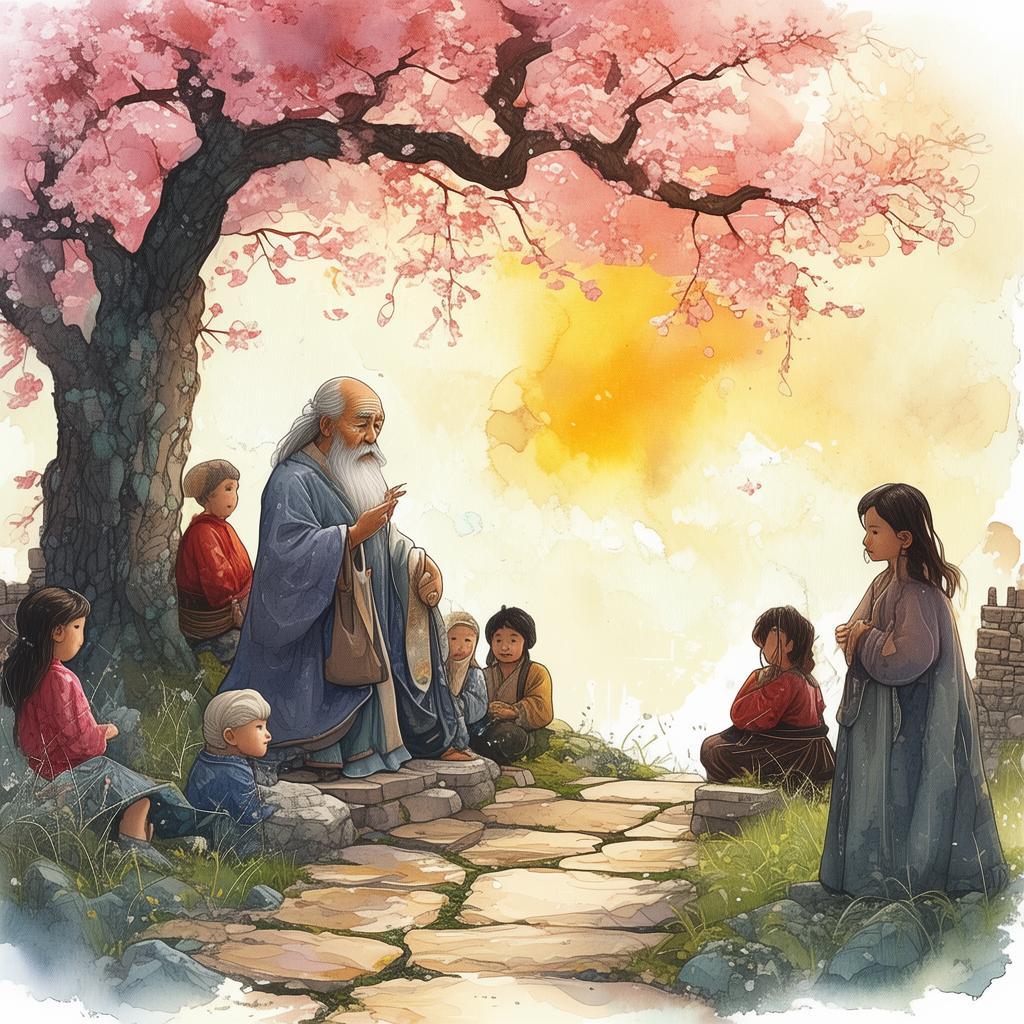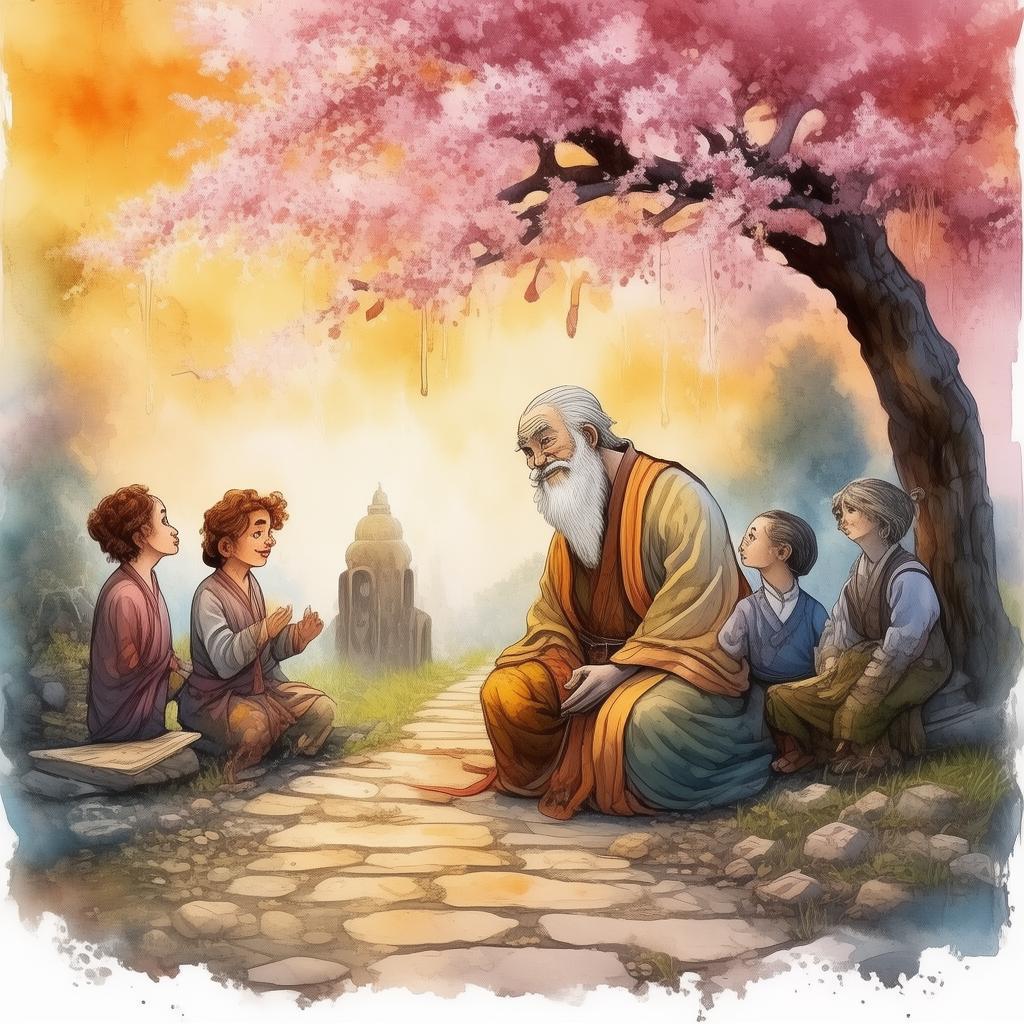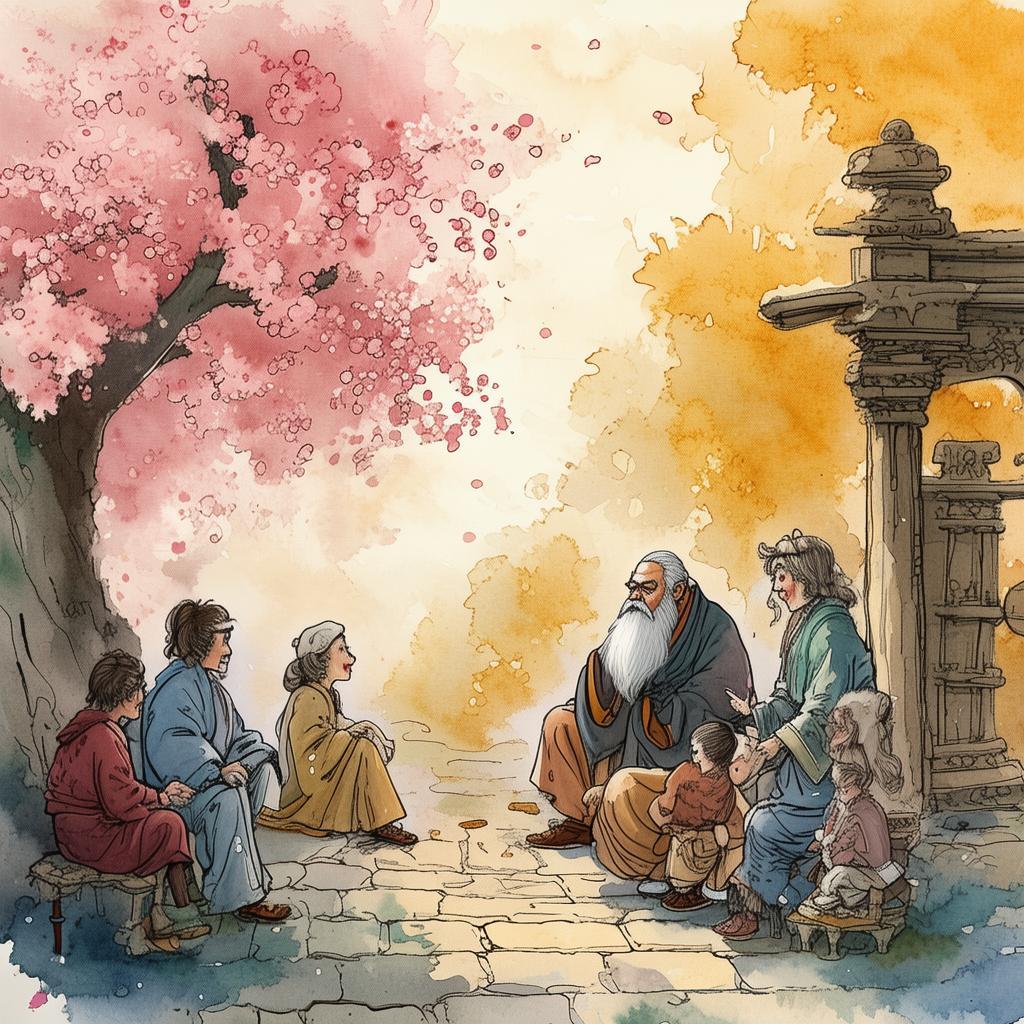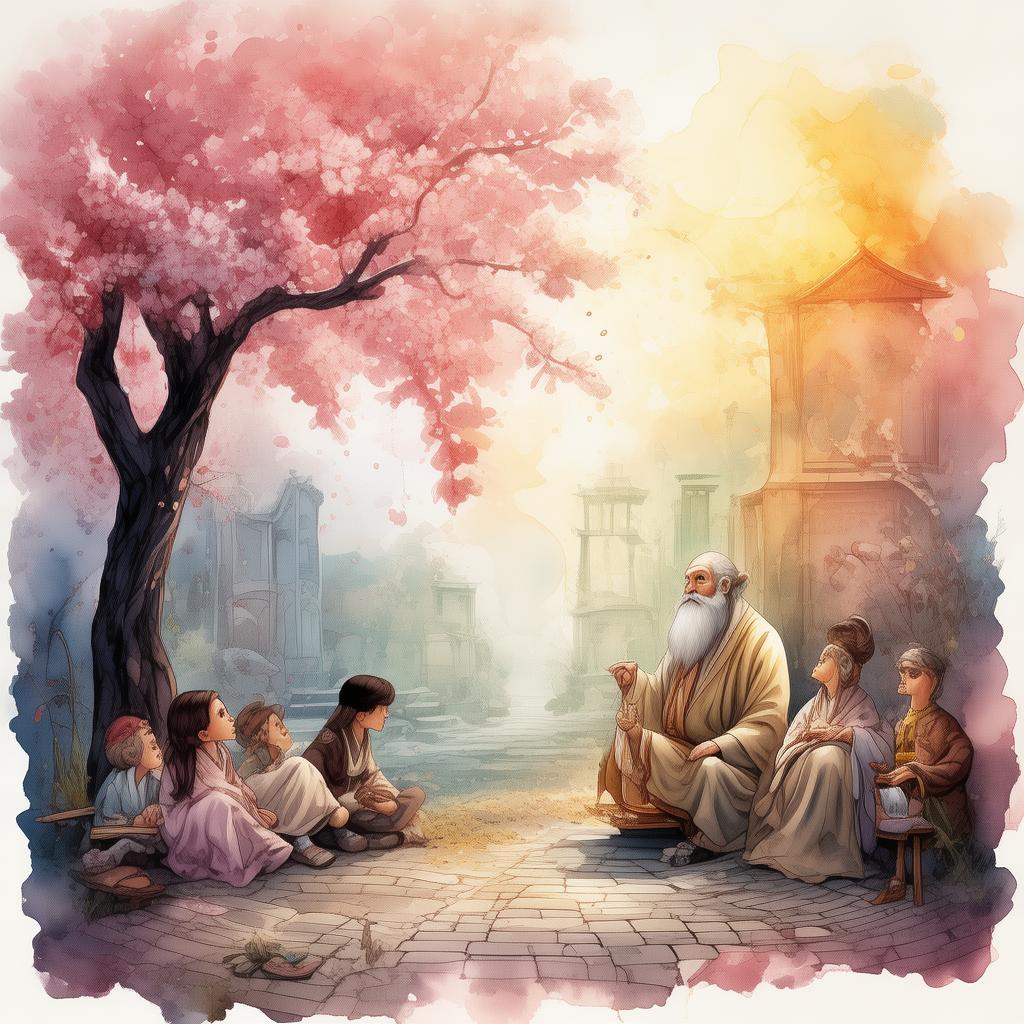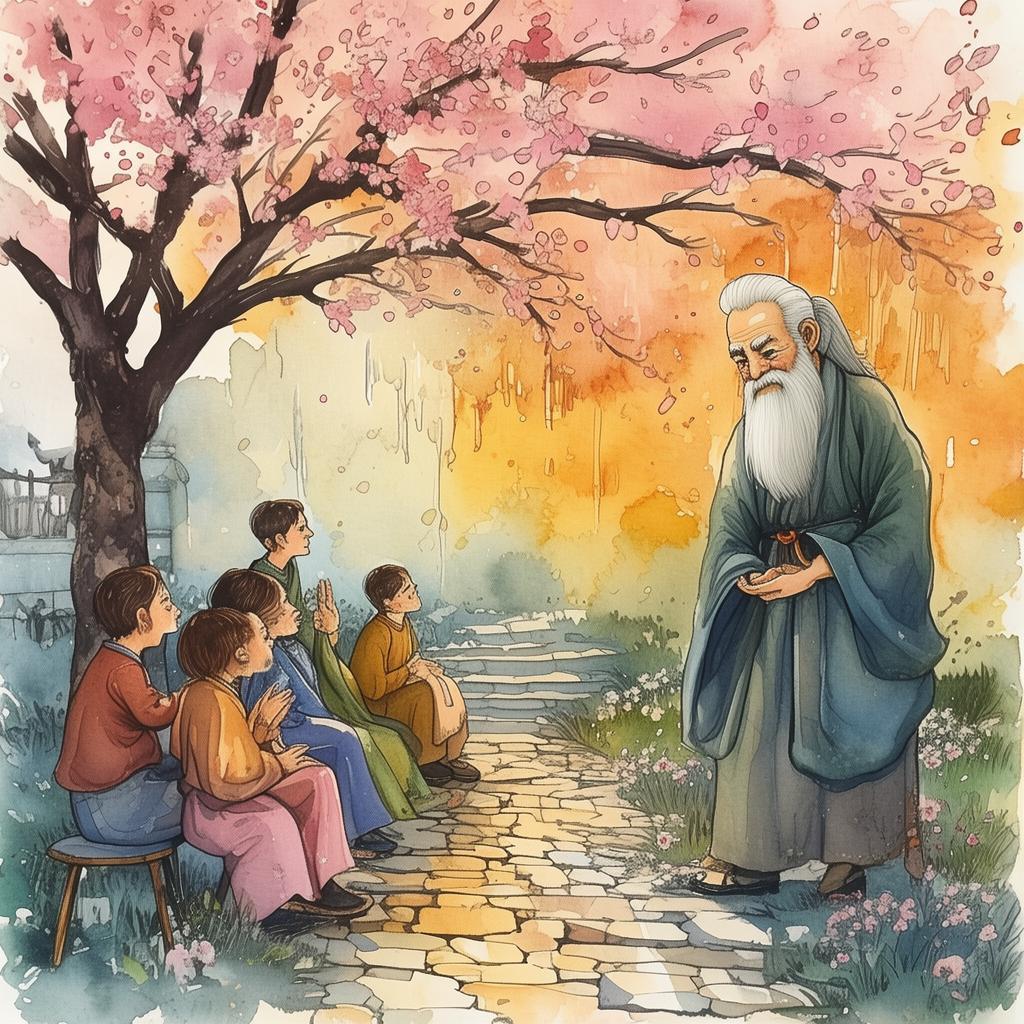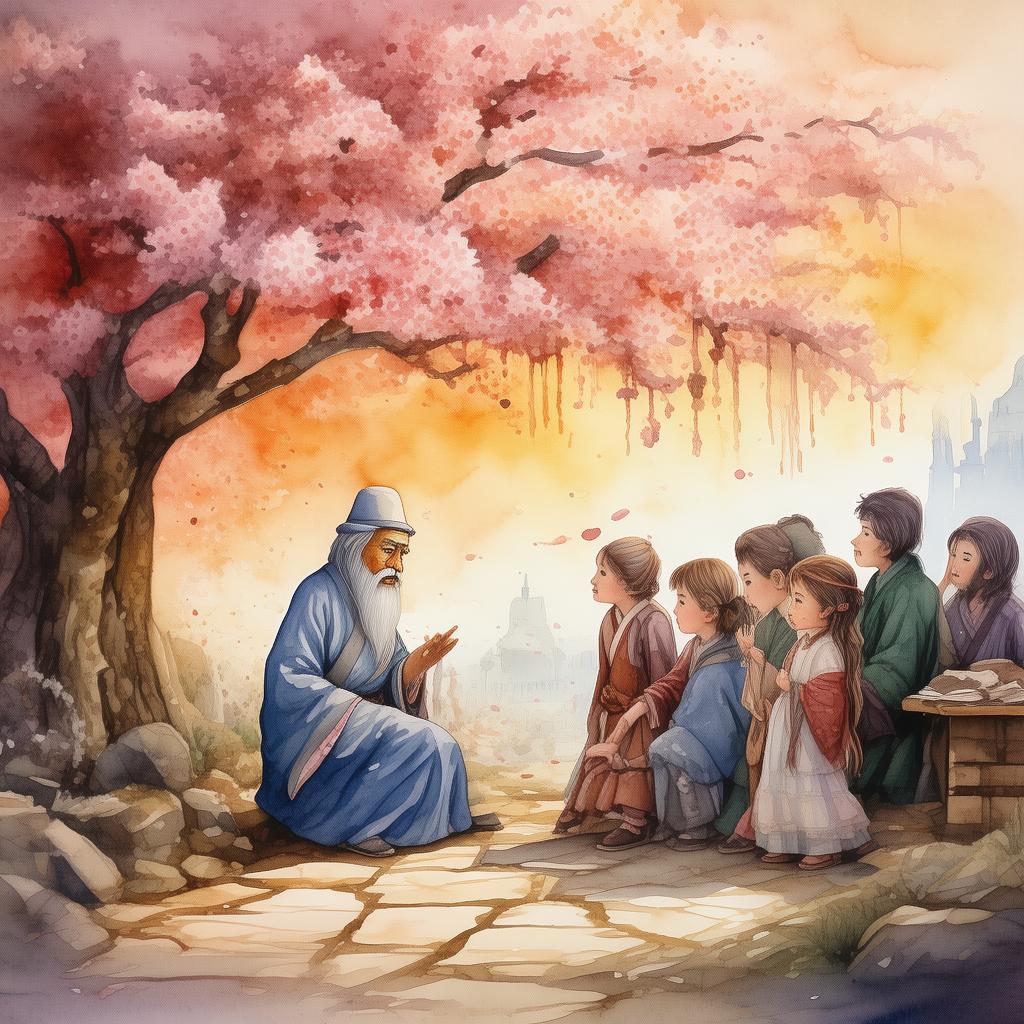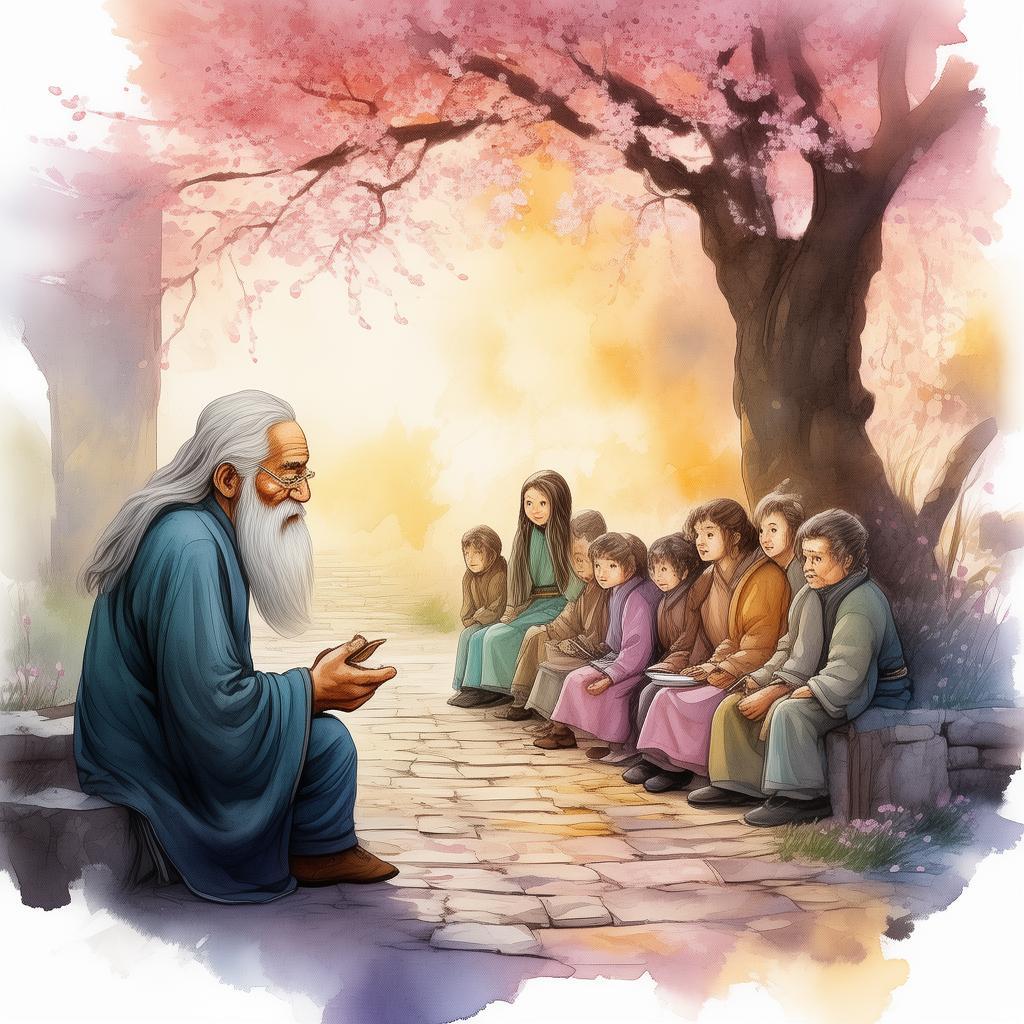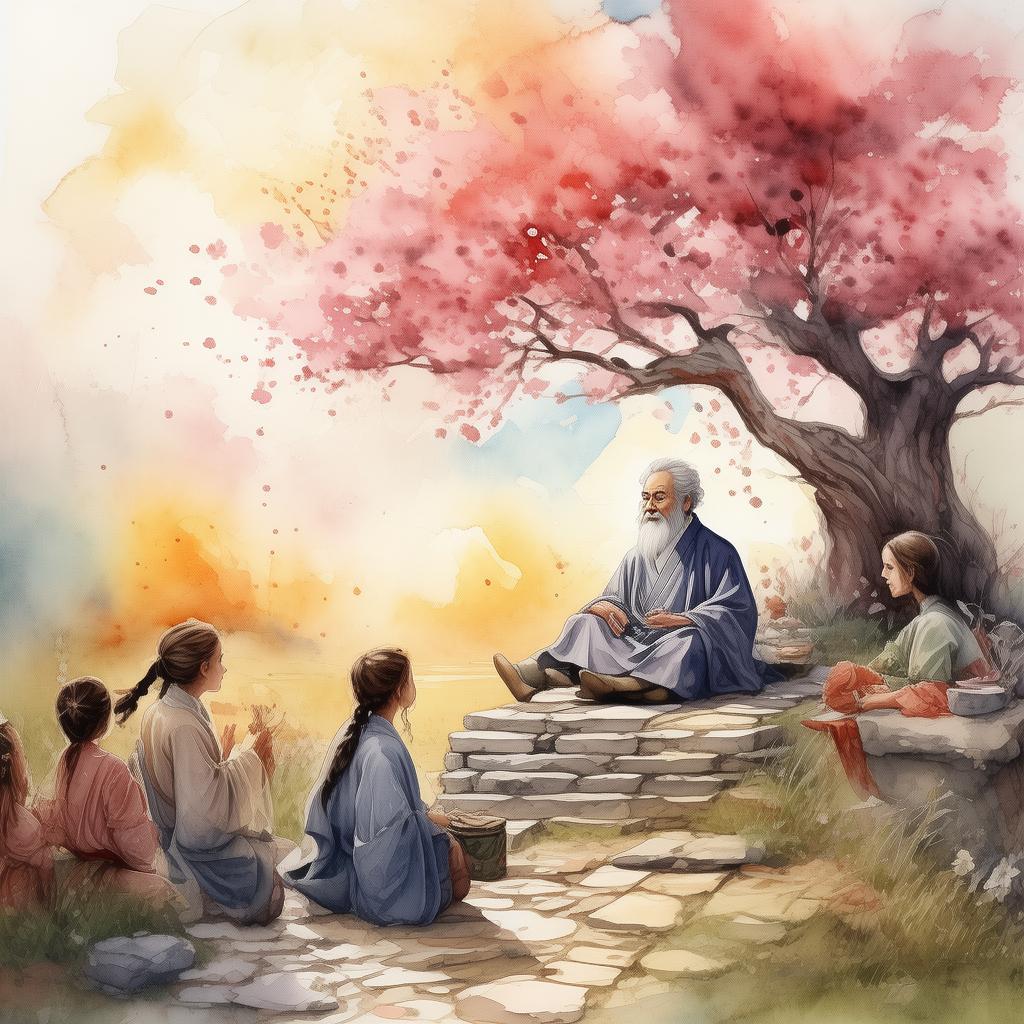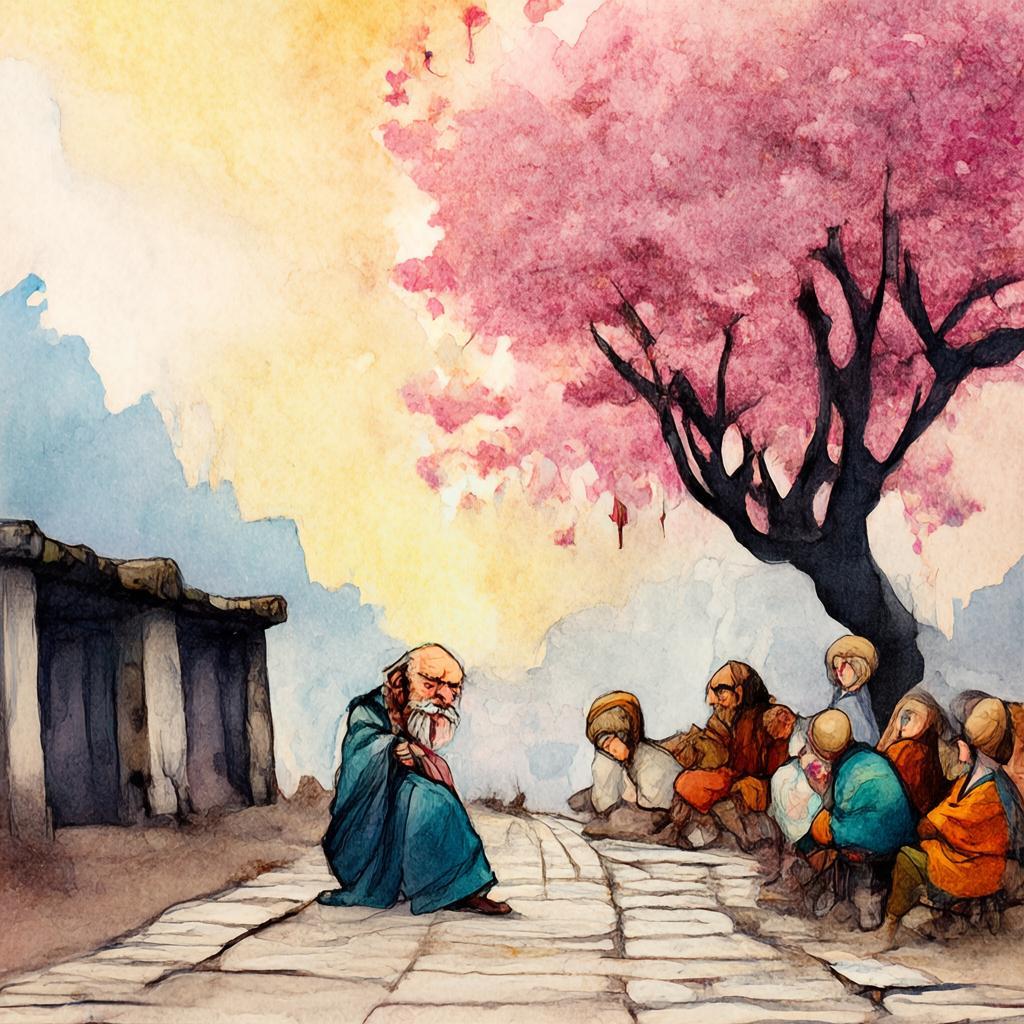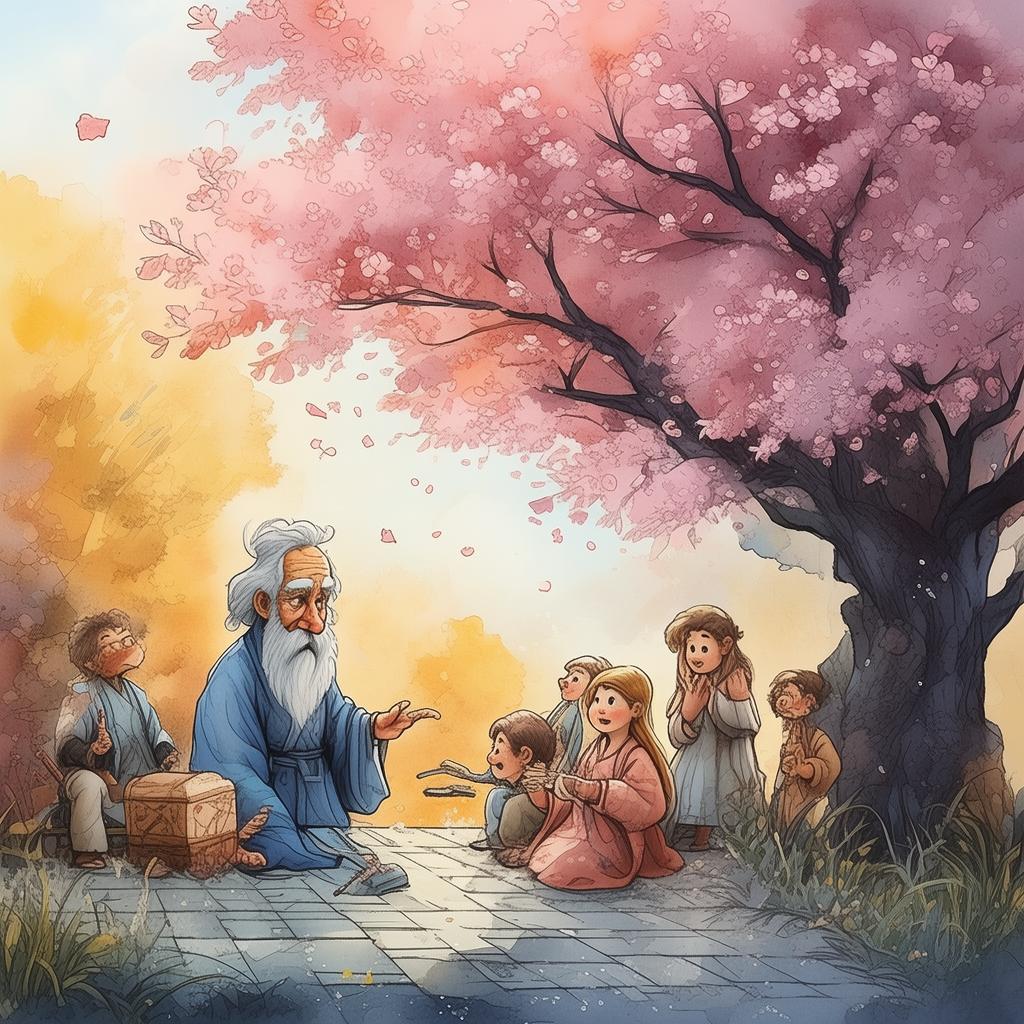The Wind's Whisper and the Bard's Lament
In the heart of ancient China, there was a wandering bard named Feng, whose melodies carried the whispers of the wind. His songs were said to possess the power to calm the stormiest seas and soothe the angriest souls. Feng traveled far and wide, spreading his tales and songs, until one day, he arrived at the court of the wise emperor, who was known for his love of literature and the arts.
The emperor, recognizing Feng's unique talent, offered him a place in his court, and Feng accepted, eager to share his songs with the emperor's people. Among the courtiers was a respected elder, Master Liu, a mentor to many young artists, who took a particular interest in Feng.
Master Liu was known for his profound wisdom and his ability to craft intricate tales. He often spoke of the importance of not just the words in a story, but the emotions they evoked. It was Master Liu who first introduced Feng to the concept of "The Bard's Ballad 200 Sayings and the Gaze of the Wind," a collection of stories that contained the essence of ancient wisdom and the power of the wind's whispers.
As the days passed, Feng became deeply engrossed in the tales of Master Liu, his mind racing with the possibilities of the stories he could create. Yet, as time went on, a shadow began to cast over Feng's heart. He noticed Master Liu's tales seemed to grow increasingly dark, filled with betrayal and loss.
One evening, as the moon hung low in the sky, Feng approached Master Liu, his curiosity piqued. "Master Liu," he began, his voice barely above a whisper, "I sense there is something you are not telling me. Your tales have taken a darker turn."
Master Liu looked up, his eyes reflecting the moonlight. "Feng, you have a gift," he said, "a gift that can touch the deepest corners of the human heart. But with that gift comes a price."
Feng nodded, understanding the gravity of Master Liu's words. "What price, Master Liu?" he asked.
"The price," Master Liu said, "is knowing the truth about who you are and where you come from."
Feng's heart raced. He had always believed he was a wandering bard, with no ties to any kingdom or noble family. But the wind's whispers had led him to Master Liu, and now, it seemed, the whispers were leading him to the truth.
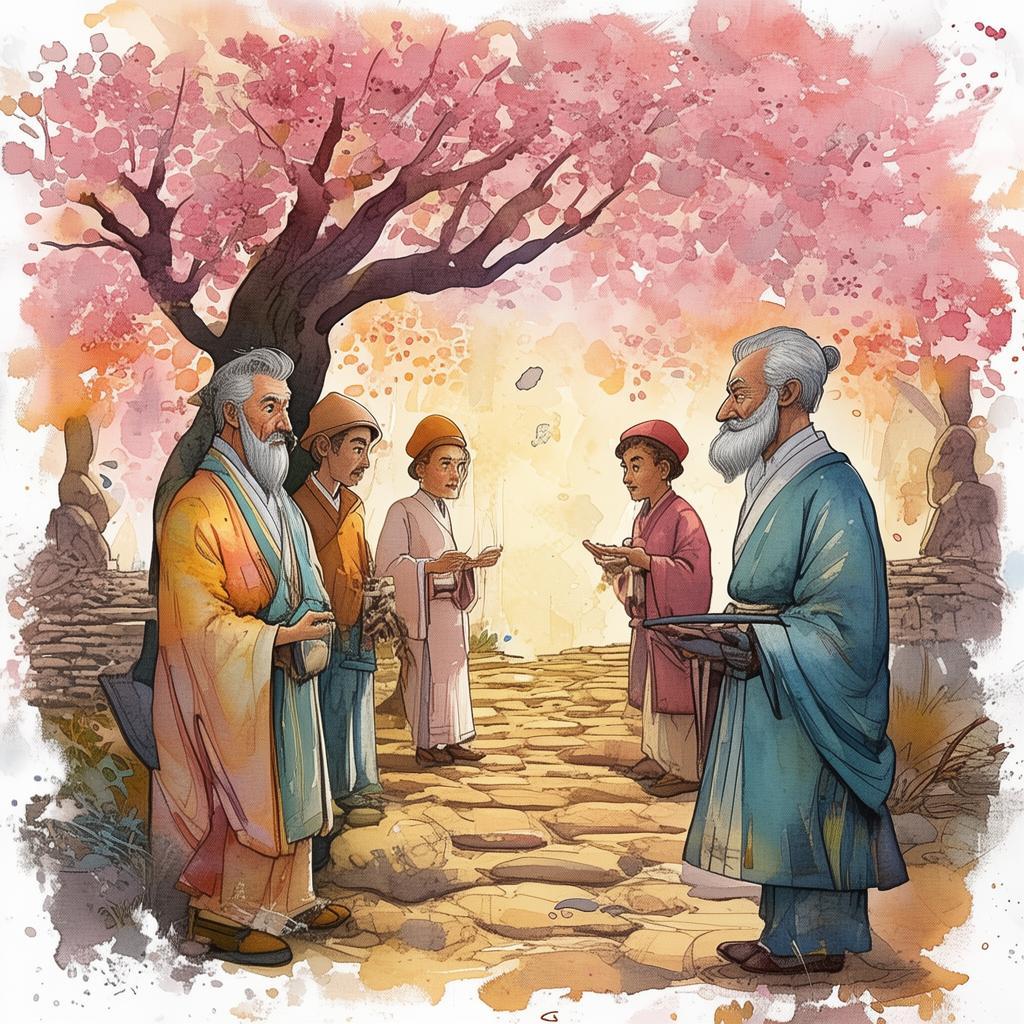
That night, as Feng lay in his bed, the wind howled outside, its voice echoing through the corridors of the palace. He felt a strange pull, as if the wind itself was urging him to uncover the truth. He rose from his bed and made his way to the library, where Master Liu was said to spend his nights.
As Feng approached the library, he heard Master Liu's voice, deep and resonant. "The wind's whisper is the voice of the past, Feng. It speaks of your heritage, of your destiny."
Feng stepped into the library, and there, standing before him, was a scroll, its edges worn and faded. Master Liu handed it to Feng. "This is your story," he said. "Read it and you will understand."
Feng unrolled the scroll and began to read. The story was of a noble prince, banished by his own father for a crime he did not commit. The prince wandered the land, his melodies echoing the sorrow of his soul, until he met a wise mentor who helped him uncover the truth.
As Feng read, he realized that the prince's story was his own. He was the noble prince, and Master Liu was his mentor, guiding him to his destiny. The tales of betrayal and loss were not just stories; they were his own past, hidden away by the wind's whispers.
Feng's heart swelled with emotion. He had been living a lie, believing himself to be a simple bard when he was, in fact, a prince of great lineage. The truth was a heavy burden, but it also carried the weight of his newfound purpose.
The next day, Feng approached the emperor, his heart heavy but resolute. "Your Majesty," he said, "I must leave your court. I have discovered my true identity and my true purpose."
The emperor looked at Feng, his eyes filled with understanding. "Go, Feng," he said. "Go and fulfill your destiny."
Feng left the court, his melodies now carrying the weight of his truth. He traveled to the far reaches of the land, spreading his tales and songs, not just as a bard, but as a prince who had found his voice again.
The wind's whispers continued to guide him, and Master Liu's teachings remained with him. He learned that wisdom was not just in the words of his tales, but in the emotions they evoked, in the truth they revealed.
And so, Feng became a legend, not just for his melodies, but for the truth he uncovered and the wisdom he shared. The tale of the prince who found his voice through the wind's whispers and the tales of Master Liu became a part of the Bard's Ballad 200 Sayings, a testament to the power of truth and the wind's gaze.
✨ Original Statement ✨
All articles published on this website (including but not limited to text, images, videos, and other content) are original or authorized for reposting and are protected by relevant laws. Without the explicit written permission of this website, no individual or organization may copy, modify, repost, or use the content for commercial purposes.
If you need to quote or cooperate, please contact this site for authorization. We reserve the right to pursue legal responsibility for any unauthorized use.
Hereby declared.
